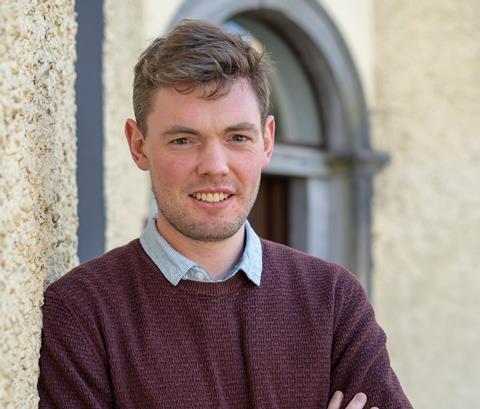Who? Gerry Liston, senior lawyer, Global Legal Action Network.

Why is he in the news? Represented six Portuguese young people in Duarte Agostinho and Others v Portugal and Others, a claim brought against 32 European states on the ground that the youths’ human rights were infringed by inadequate climate change policies. The European Court of Human Rights ruled that their claim was inadmissible, but found partially in favour of a separate claim brought against Switzerland.
Thoughts on the case: ‘It is a major development that the Grand Chamber has held that ECHR signatories must adopt science-based emissions targets aligned with 1.5°C. Its finding that states must limit their contributions to emissions released outside their borders through the importation of carbon-intensive goods (a central claim in Duarte Agostinho) is also extremely important. Switzerland, for example, contributes more to global emissions this way than through emissions released within its borders. These obligations must now be relied on in domestic courts throughout Europe. Most importantly, going forward, the ECtHR’s emphasis on ensuring the effective protection of human rights must be invoked to ensure governments don’t continue to get away with “cooking the numbers”. Many emissions targets, including the UK’s, are labelled 1.5°C-compatible but would lead to 3-4°C this century if all countries made the same level of effort. That’s exactly where we’re heading and it would – will? – be utterly catastrophic.’
Dealing with the media: ‘The challenge with engaging with the media on this case has in many ways been similar to the challenge with presenting the climate science to the court. While, in their essence, the legal arguments and science that are its foundation are simple, they obviously require a bit of explanation for people who haven’t had the opportunity to immerse themselves in both climate science and ECHR law. And modern media doesn’t always allow for this.’
Why become a lawyer? ‘My motive was a belief that, despite the major limitations of the legal system, legal action can promote progressive change – perhaps most significantly in how it can reinforce the efforts of civil society organisations and grassroots movements campaigning for change outside the courtroom.’
Career high: ‘A particular highlight has been supporting the six youth-applicants in Duarte Agostinho – their courage has been extraordinary. And the incredible people I work with in and outside of GLAN.’
Career low: ‘The times when the tide we are swimming against feels overwhelmingly strong. But advances like we achieved this week and feeling part of a wider movement keep me swimming. As we say in Irish, “Ní neart go cur le chéile” – there’s no strength without togetherness.’































2 Readers' comments